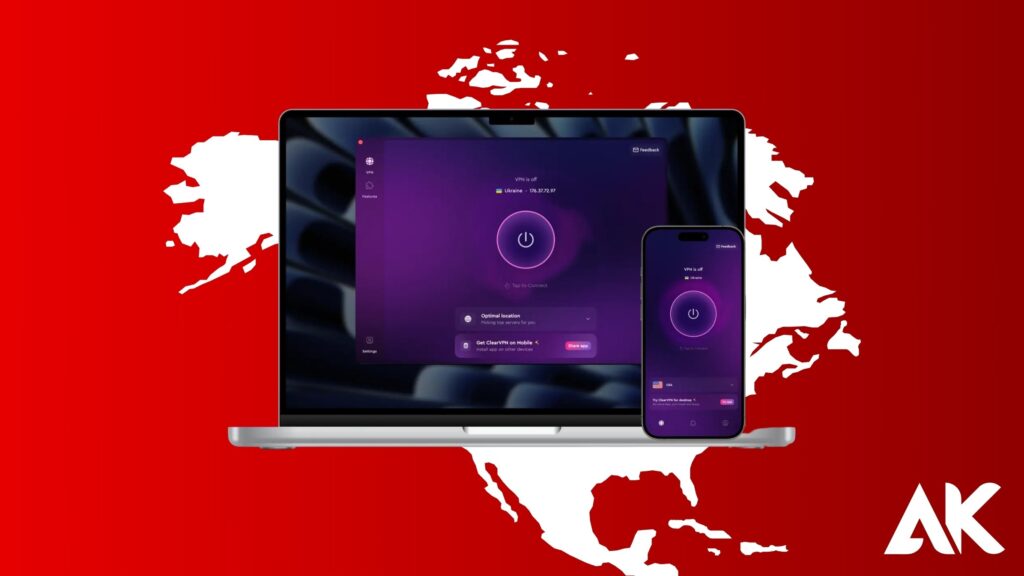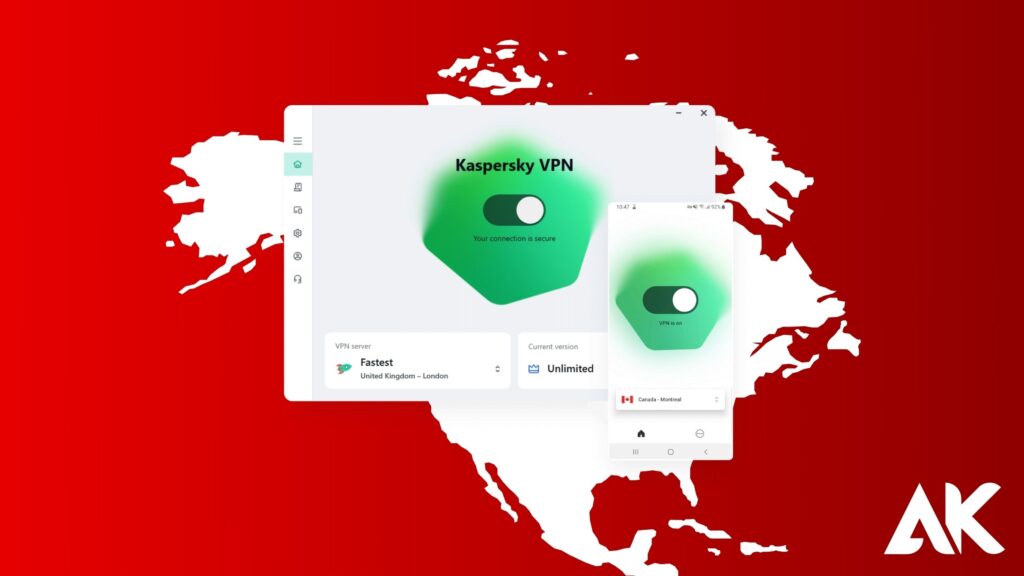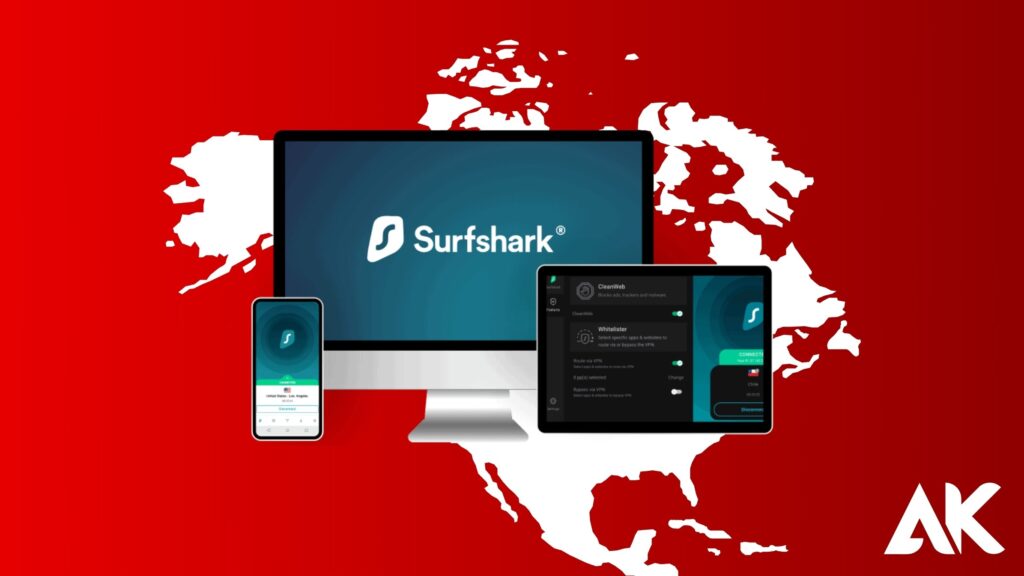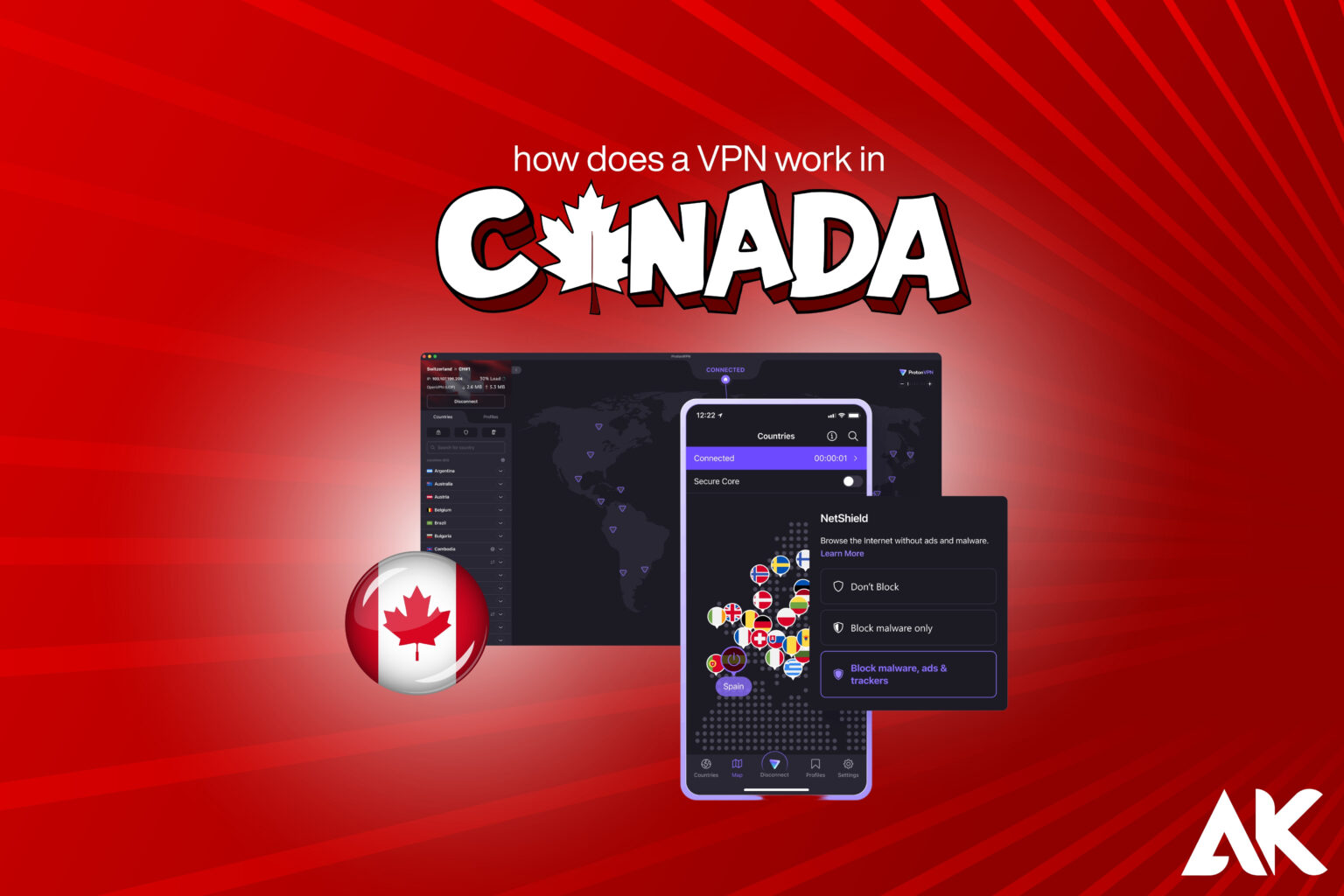how does a VPN work in Canada? In a nutshell, it allows you safely access material, encrypts your data, and conceals your actual location. Knowing how VPNs work in Canada is crucial in a digital world when internet freedom and privacy are more important than ever.
This blog post, which is specifically designed for Canadian customers, will take you through seven compelling facts that illustrate how does a VPN work in Canada? activities, opens geo-restricted content, and keeps you safe. This tutorial explains everything in easy-to-understand language, so you can trust it whether you’re new to VPNs or simply want to make better online decisions.
What is a VPN and Why Should You Care?

Before we get into the details, let’s start with the basics.
What Does VPN Stand For?
VPN means Virtual Private Network. It’s a service that creates a secure connection between your device and the internet, hiding your real IP address and encrypting your online activity.
Why Is This Important in Canada?
Canada has strong privacy laws, but that doesn’t stop:
- ISPs from tracking your activity
- Websites from knowing your location
- Geo-blocked content (like U.S. Netflix or BBC iPlayer) from being inaccessible
That’s where a VPN steps in.
VPNs Hide Your Real IP Address

When exploring how does a VPN work in Canada, one key fact is that it hides your real IP address. This means your online location stays private, letting you browse anonymously and access region-blocked content without revealing your true identity.
What Is an IP Address?
Your IP (Internet Protocol) address is like your online home address. It tells websites where you’re connecting from — usually showing your city or province.
How Does a VPN Help?
When you connect to a VPN, your real IP address is replaced with one from the VPN server. This means:
- Your real location stays hidden
- You appear to be in a different country
- Websites and apps can’t track you as easily
Example: In Canada, you can use a VPN to get a U.S. IP address to access American streaming content.
VPNs Encrypt Your Internet Traffic

A key part of understanding how does a VPN work in Canada is encryption. VPNs encrypt your internet traffic, turning your data into unreadable code. This keeps your personal information safe from hackers, especially when using public Wi-Fi or unsecured networks.
What is Encryption?
Encryption is like turning your data into secret code. Only the person with the right key can read it.
Why Is This a Big Deal?
A VPN encrypts all the data going to and from your device, which:
- Protects your info from hackers (especially on public Wi-Fi)
- Keeps your messages, passwords, and bank info safe
- Prevents your ISP from seeing what you’re doing online
So if you’re using a coffee shop’s free Wi-Fi in Toronto or Vancouver, a VPN keeps your connection private.
VPNs Help You Access Geo-Blocked Content
An important aspect of how does a VPN work in Canada is its ability to bypass geo-blocks. By changing your virtual location, a VPN lets Canadians access restricted content like U.S. Netflix, BBC iPlayer, and more, no matter where you are.
What is Geo-Blocking?
Some websites and apps restrict content based on where you are in the world. This is called geo-blocking.
How Does a VPN Bypass It?
A VPN lets you choose a server in another country. That way, the website thinks you’re in that country.
Use cases for Canadians:
- Watch U.S. Netflix or Hulu
- Access BBC iPlayer from the UK
- Play region-locked games or apps
VPNs Give You More Privacy in Canada
A major benefit of understanding how does a VPN work in Canada is improved privacy. VPNs stop ISPs and websites from tracking your online activity, giving you greater control over your personal data and keeping your browsing habits completely confidential.
Is Internet Tracking a Problem in Canada?
Yes. Even in Canada, ISPs (like Bell, Rogers, and Telus) can:
- Track your browsing history
- Sell anonymized data to advertisers
- Monitor your usage
How a VPN Solves This
A VPN hides your activity from your ISP. Even your government or employer can’t easily monitor your online behavior.
So when you ask “how does a VPN work in Canada,” one answer is simple: it shields you from being tracked.
VPNs Can Improve Online Security for Work
One key reason to learn how does a VPN work in Canada is its role in securing remote work. VPNs protect sensitive business data, allowing Canadians to safely access files, use company networks, and communicate without risking privacy or data breaches.
Remote Work and VPNs
More Canadians are working from home. Businesses often require employees to use VPNs to:
- Access secure files
- Connect to internal networks
- Protect company data
If you’re a freelancer, entrepreneur, or remote worker, using your own VPN gives you:
- Peace of mind
- Secure client communication
- Encrypted file sharing
Free VPNs in Canada Can Be Risky
When exploring how does a VPN work in Canada, it’s important to know that free VPNs can be risky. Many log your data, show ads, or have weak security. Paid VPNs offer better privacy, reliability, and protection for Canadian users.
What’s the Problem with Free VPNs?
Not all VPNs are created equal. Free VPNs often come with hidden problems:
- Slow speeds
- Limited server locations
- Data logging (they may sell your data!)
- Pop-up ads and trackers
What to Look for in a Good VPN for Canada
When choosing a VPN, especially in Canada, look for:
- No-logs policy
- Fast and reliable servers in Canada and worldwide
- Strong encryption (AES-256)
- 24/7 customer support
- Multi-device support
Top paid VPNs in Canada include:
- ExpressVPN
- NordVPN
- Surfshark
- CyberGhost
- Private Internet Access
Using a VPN in Canada Is Legal and Easy
A common question around how does a VPN work in Canada is whether it’s legal. The answer is yes—using a VPN in Canada is completely legal. It’s also easy to set up, making online privacy accessible for all Canadians.
Is it Legal to Use a VPN in Canada?
Yes, using a VPN is 100% legal in Canada — as long as you’re not using it to break the law (like illegal downloading or fraud).
How to Set Up a VPN in Canada (Quick Guide)
Most VPNs are simple to use. Here’s how it works:
- Choose a VPN provider (ExpressVPN, NordVPN, etc.)
- Download the app on your device (iOS, Android, Windows, macOS)
- Sign in and choose a server location
- Click connect — and you’re protected!
Devices That Work with VPNs in Canada
VPNs are compatible with most devices, including:
- Smartphones (iPhone, Android)
- Laptops & Desktops (Mac, PC)
- Smart TVs (via routers or apps)
- Gaming consoles (with some setup)
- Routers (for whole-house protection)
This means you can protect your entire digital life with just one subscription.
Pros and Cons of Using a VPN in Canada
Pros:
- Strong privacy protection
- Unlock global content
- Safer public Wi-Fi use
- Better data security
- Useful for work and remote access
Cons:
- May slow down your internet slightly
- Good VPNs cost money
- Some services may block VPNs
Final Thoughts
If you’re still wondering how does a VPN work in Canada, the bottom line is this .A VPN hides your identity, encrypts your data, and gives you freedom online.Whether you’re streaming American shows, working remotely, or just protecting your privacy, a VPN is a smart move for Canadians in 2025 and beyond.
FAQs
Is using a VPN in Canada legal?
Yes, VPNs are legal in Canada for personal andhow does a VPN work in Canada business use.
Can I use a VPN to access U.S. Netflix in Canada?
Yes, a VPN can help you bypass Netflix geo-blocks and how does a VPN work in Canada access content from the U.S.
Will a VPN slow down my internet speed?
It can slightly, but premium VPNs offer fast servers to reduce the how does a VPN work in Canada impact.

